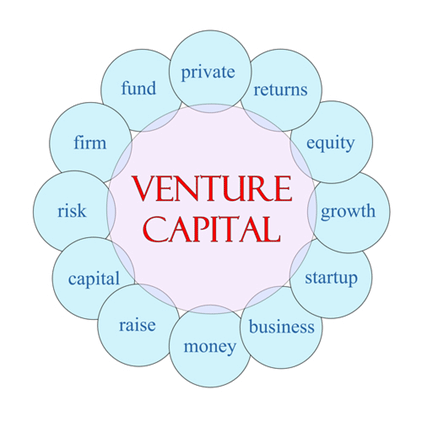Venture capital: effective ways to raise capital for a new startup or an ongoing business!
Money is an important factor in doing business. business needs initial capital for running a business. Private capital is never enough in the long run. However, the amount of money to be borrowed and the source of it depends on the scope and type of business. How can an entrepreneur finance a startup? it is difficult to run it properly without funds. If you don't have your own, then the fund becomes a big concern. Where are the funds available? One thing to keep in mind before raising funds is that no one will give you free money. Someone may lend a little, but it is temporary.

Image Source
So, what is the way to raise funds? Some try to get government funding. As a startup, few government programs are funded. Apart from this, there are some private or institutional initiatives. Talking to a few people who have worked in fundraising, it is known that if your initiative is very good or if the business is good, a big organization may come forward. Let's start with a few ways to raise funds.
Venture Capital System
Venture capital firms or companies raise ‘venture capital funds’ formed for specific purposes. Large companies or wealthy individuals invest in these venture capital funds. Ordinary or retail investors are discouraged from investing in such funds. Because the risk is high and the results come late. Venture capital firms or companies manage these funds. In return they receive management fees.
The term of the venture fund is long i.e 5 to 15 years. Those who invest in venture funds are called limited partners or LPs. And those who manage and invest in this fund are called General Partners or GPs. General partners are involved in managing the funds themselves as well as the money, Selects start-ups, audits or due diligence. After the investment, the invested organization takes care of it, sitting on their board as a director. Venture funds are invested in various organizations. The venture firm or company decides on this investment and this Investment is for long term about Three to eight years. Investments are made mainly through ordinary shares and partial capital (quasi equity). The venture firm sells those shares at the end of the term or at a convenient time. Sometimes with profit and sometimes with loss. If the invested company goes bankrupt, the entire investment can go to waste.
Venture capital finances the various stages of an enterprise; i.e.
- when the business is in the form of an idea in the mind of the entrepreneur
- Early stage - the entrepreneur has started work to start the business but has not started selling Good income is coming, break even has been or is near.
Venture capital is called smart money. Investing in venture capital is not as secure as debt. In case of loan, there is collateral. There is a guarantor, there is protection of law. The debtor has to sign a bunch of legal papers. Venture capital, on the other hand, shares the profits and losses of the invested company. The loss of the company means its loss. So, Venture Capital's partners are much more involved in the invested company. That is why the number of Venture Capital invested companies is much less than that of banks or financial institutions. Venture Capital has a hand in the growth of many world-famous companies like Microsoft, Starbucks, Apple, Intel, Facebook, Google, eBay, Amazon.


Good article, personally I have several ideas that I will develop, the lack of money is a limitation which all entrepreneurs must overcome, the debt when acquired can destroy a business overnight.
The issue is getting in touch with these venture capitalist, it is usually difficult to get in touch with them.